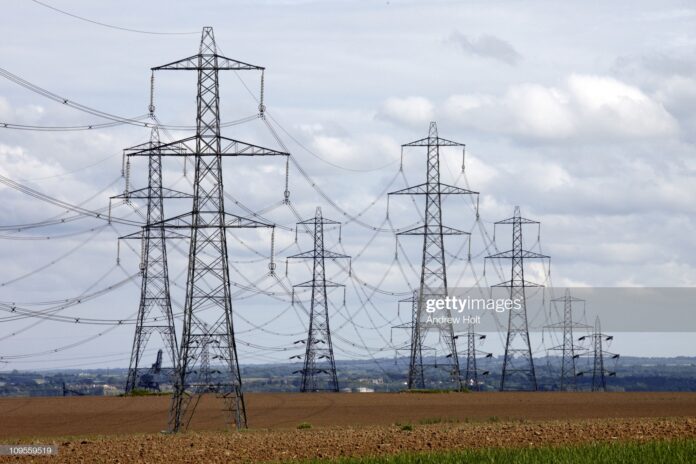A provision of the sweeping infrastructure law signed in November by President Joe Biden could extend the federal government’s control over electric power transmission expansions, potentially allowing it to override state decisions on energy projects within their borders and historic control.
The provision expands federal government’s power to identify where it believes new clean-energy corridors are needed to expand grids, arguably overriding state objections. The law also provides funding for transmission development in corridors deemed to be in the “national interest” and associated infrastructure, allowing the federal government to fast-track projects along those routes.
Concern in Maine
Residents and legislators in Maine have expressed concern the New England Clean Energy Connect (NECEC) project, which was rejected by voters in a November referendum by a 59 percent of those voting, could be restarted under this infrastructure provision due to comments Jennifer Granholm, the U.S. Secretary of Energy, has made.
Granholm took to Twitter in support of the NECEC, issuing a number of tweets touting its benefits.
“The @NECEC_ME transmission line will bring clean energy to New England and reduce carbon emissions equivalent to taking 700k cars off the road,” wrote Granholm in one tweet. “I hope Mainers vote NO on ONE to keep this project moving and reliable, affordable, #CleanEnergy flowing!”
Later, Granholm told the Boston Globe, [w]e’re going to sharpen our pencils and see how we can continue to help push that,” meaning the NECEC.
The federal government has no legitimate, constitutional role in state decisions on electric power infrastructure siting, state Sen. Rick Bennett (R-Oxford), who opposed the NECEC, told the press.
“There’s no pressing public interest and certainly not at the federal level for the Biden administration to involve itself and overturn the will of Maine people in such an egregious fashion,” Bennett said.
Federal Overreach
Overriding the will of Maine voters could occur as an outcome of the legislation depending upon how badly the Biden administration wishes to push green energy, according to Nick Murray, policy analyst for the Maine Policy Institute.
“Certain energy provisions in the infrastructure bill, namely the $2.5 billion ‘Transmission Facilitation Program’ (TFP) fund and the redefinition of transmission project siting authority, without a doubt constitute federal overreach,” said Murray. “As for the NECEC, since Maine voters blocked it, not state regulators, I’m concerned the new authority granted the federal government in the infrastructure bill, could be used by the Department of Energy to override the express will of the voters and contract to fund, operate, and even own the corridor through the TFP fund if it wanted to.
“There are plenty of reasons the federal government could put forward to argue the corridor is crucial to grid resilience: ISO New England is warning of rolling blackouts for the first time, Mainers’ electricity prices are set to rise about 30 percent over the next year since the Maine Public Utilities Commission authorized rate hikes, plus the current shortage of natural gas could further drive up costs and put a strain on the regional grid” Murray said. “In this context, Sen. Bennett may be too confident the federal government has no pressing interest to act.”
Intervention Not a Done Deal
After the referendum blocking the NECEC passed, the Maine’s Department of Environmental Protection, under the direction of Gov. Janet Mills, suspended the permit for the corridor.
Even with potential arguments in favor of federal intervention, there are political reasons for believing such intervention is unlikely, says Murray.
“While Sec. Granholm’s lobbying to keep the corridor made the administration’s position clear, I don’t foresee them using this power to override Maine voters on NECEC unless the situation becomes dire,” Murray said. “I think it would literally take blackouts, but by then, federal action would be too late.
“The political consequences may be the biggest impediment to the feds stepping in since Gov. Mills would have to answer for it as well,” said Murray. “She was in favor of keeping the corridor going and has been mostly aligned with Biden administration policy along other issue areas, so I doubt the Biden administration would want to put her in that position.”
Kevin Stone (kevin.s.stone@gmail.com) writes from Arlington, Texas


























